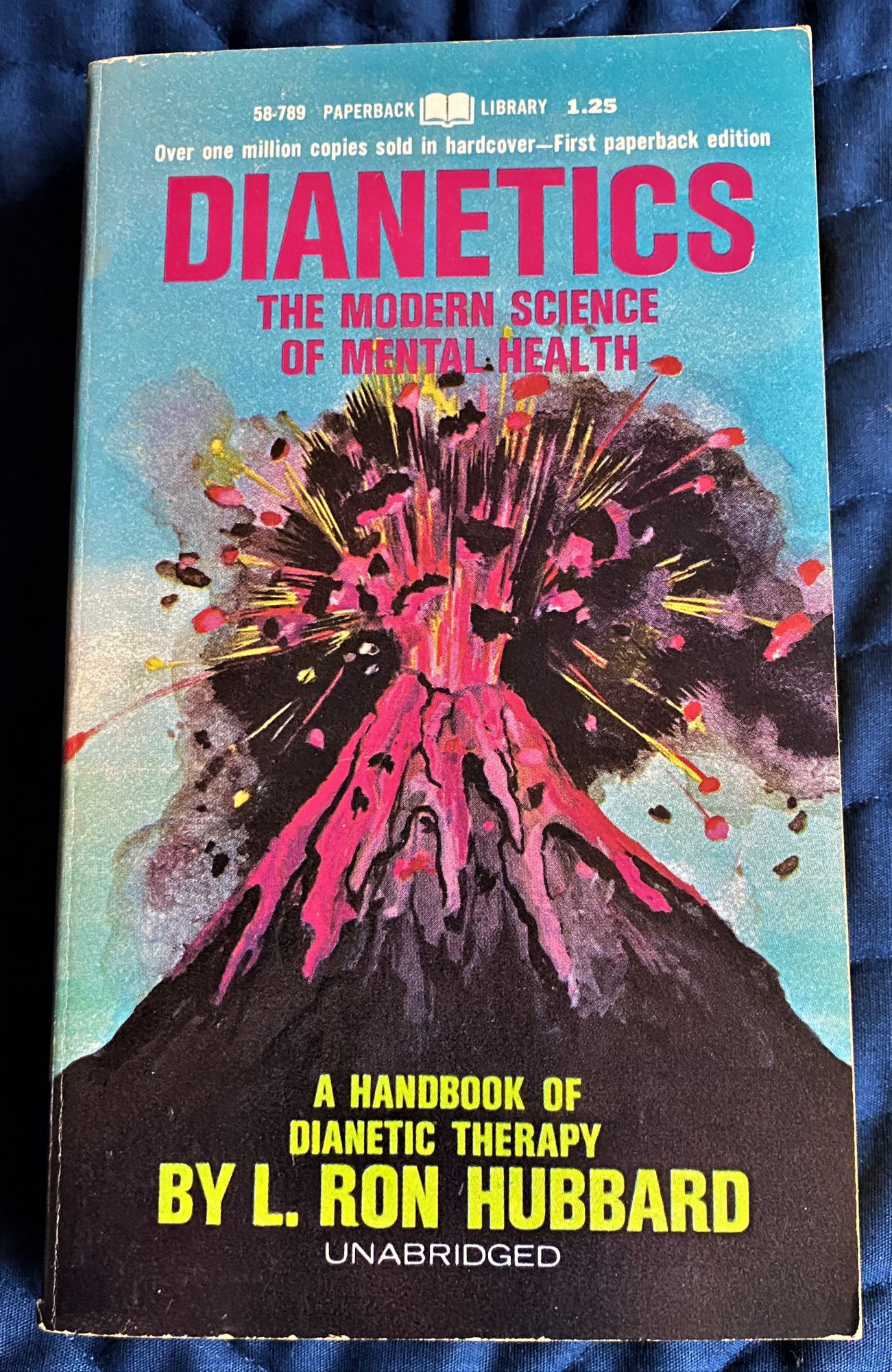What Does Dianetics Do?
What Does Dianetics Do?
Blog Article
Dianetics - Truths
Table of ContentsThe Of DianeticsLittle Known Facts About Dianetics.Some Ideas on Dianetics You Should KnowThe 9-Minute Rule for Dianetics
I couldn't ever not intend to get anything that enters your mind for you- if it was or else, I would not be sitting right here with you, doing this. I not only might never ever have a trouble, or otherwise intend to listen to something that comes to mind for you, but I'm completely eager to understand every concept, every idea, every photo or sensation that arises or materializes for you- do not ever before believe or else, and if somehow you do, please simply let me understand! Occasionally, you might have a thought, and picture, concept or incident turn up that does not appear to address the inquiry, or relate to it, but however, constantly do tell me concerning it, and as we proceed, the importance will certainly arise for you.This is intrinsic in the basis of handling, and the subject of this conversation: the standard duties of the therapist and the customer: The fundamental duty of the counselor is, unlike "common training", not to manage, which indicates to apply and/or hinder, however to instead function from the basis of EMPOWERING THE CUSTOMER.

The Of Dianetics
John Mcmasters shared this fundamental truth incredibly well in among his lectures on Power processing, wherein he discusses exactly how he was asked what this "special propensity" was that he had for offering such great sessions; he had to consider that for a minute, and found that it was what he had not been doing, in addition to what he was doing: he had not been assessing, evaluating, computing, or as a matter of fact, producing any ideas, not to mention spoken expressions, after providing the command and while waiting for the PC to finish their response to their complete satisfaction; he was, merely and just, being present with the computer, and completely interested.
The function of the counselor, showed; that was his "unique propensity". I have actually had my very own experience which instructed me this well, extremely early on in the game. In 1982, having actually just recently finished my training and teaching fellowship on New Age Dianetics, I was running this on a PC, and there was a point in the session where (being a bit wet behind the ears not yet moved here having many hours under my belt as an expert auditor) the computer appeared to be "taking also lengthy" to share anything vocally after I gave him a command.
This trick ended up being one of the most valuable payment that John ever made to the subject of therapy or auditing (Dianetics). In my modest opinion, it is the best contribution that any person has ever before made to these subjectsthe application is completely non-judgemental, non-evaluative, and devoid of any type of idea, guidance or opinion.no preconditioned schedule for people, or 'levels' that they must do
In Scientology we prided ourselves on not assessing for people. All that really indicated was that the auditor did not Vocally examine for the PC in session.
Top Guidelines Of Dianetics

Any person that had ever seen John audit could not aid however discover a distinct quality in his bookkeeping."The client's basic duty is to be there with the function of moving in the instructions of their spiritual goals, and to easily and fully express and experience whatever materializes for them in addressing the inquiries and performing the instructions in the handling.
This is something to process as required. However also, individuals frequently have previous find more information experience and/or indoctrination in auditing/processing which, in some means, and to some extent, in fact misdirects them right into perspectives, ideas and actions patterns that prevent the complete realization of these functions, see here now and so they will certainly have a tendency to hinder the expressing of what comes to mind, as in the instances offered over. * The initial, and perhaps leading examples of mis-indoctrination bring about less than completely smooth and reliable sessions, can be found in specific elements of the training regimens, or "TR's":"TR's" are commonly an individual's very first, or at least early, experience in Scientology, and while I will go on to discuss what I see as the defects in idea and technique, nevertheless, often tend to be considerably healing, done as they are offered (Hubbard insists that "TR's are not processing, they are training", but factually, they are both processing AND training)
Alan Walter made similar monitorings, and improved these with his "Presence Processes". There is no "flunking", and no denial of the fact of this being processing. The focus, as it should be, is on experiencing the other person's presence. All the symptoms which obtain a "flunk" in doing "TR-0" are merely the being's initiatives to resist the other person's visibility, and rather than being bugged and nagged with "Flunk", which imposes "failing!" on the being, one just requires to be encouraged to "stick their feet in the water a little much deeper", to increasingly rehabilitate their capacity and willingness to totally share and experience "being right here", or "existence", with others.
More About Dianetics

Report this page